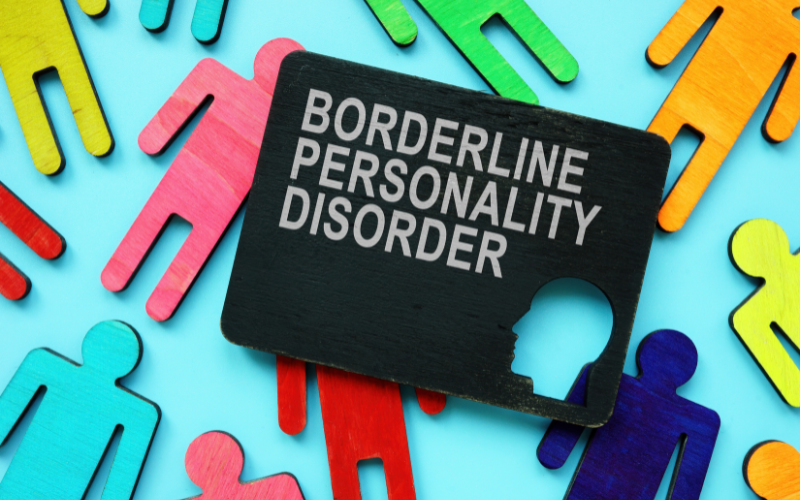Borderline Personality Disorder (BPD) is a complex and multifaceted mental health condition that affects a significant number of individuals worldwide. This condition is characterized by intense and unstable emotions, distorted self-image, impulsive behavior, and unstable relationships. It can negatively impact an individual’s personal and professional life, leading to social isolation, anxiety, depression, and even suicidal ideation and attempts.
Despite the challenges associated with treating BPD, psychotherapy has emerged as an effective intervention that can help individuals with BPD manage their symptoms and lead fulfilling lives. In this article, we will delve into the benefits and different approaches to psychotherapy for BPD.
Approaches to Borderline Personality Disorder Psychotherapy
The intricacies of Borderline Personality Disorder (BPD) can impose a profound influence on an individual’s life, but despite its complexities, several evidence-based psychotherapeutic treatments exist to help those suffering from BPD manage their symptoms and enhance their overall quality of life.
Dialectical Behavior Therapy (DBT)
One such treatment is Dialectical Behavior Therapy (DBT), a fusion of individual therapy and group skills training that utilizes cognitive-behavioral therapy. DBT aims to alter negative thought patterns and behaviors by teaching clients life-enhancing skills such as mindfulness, emotion regulation, distress tolerance, and interpersonal effectiveness. With its emphasis on these crucial skills, DBT has been demonstrated to be remarkably successful in reducing suicidal behavior, self-harm, and hospitalization rates among individuals with BPD.
Another approach, Schema-Focused Therapy, endeavors to modify negative patterns of thought, feeling, and behavior by addressing the underlying schemas or core beliefs that contribute to an individual’s BPD symptoms. The therapist works closely with the client to identify their schemas and helps them replace negative schemas with healthier ones. This approach has been found to be highly effective in reducing BPD symptoms, including impulsivity and affective instability.
Transference-Focused Psychotherapy (TFP)
Transference-Focused Psychotherapy (TFP) is a one-of-a-kind form of psychotherapy that concentrates on the relationship between the therapist and the client. TFP is based on the belief that early childhood experiences play a crucial role in an individual’s BPD symptoms, and the therapist helps the client comprehend their emotions and relationships with others. With its focus on the therapeutic relationship, TFP has been shown to be highly effective in reducing BPD symptoms, including impulsivity and affective instability.
Mentalization-Based Therapy (MBT)
Lastly, Mentalization-Based Therapy (MBT) is a type of psychotherapy that improves an individual’s ability to understand their own and others’ mental states. Through this approach, individuals develop the ability to think about their own and others’ minds, leading to improved relationships and reduced BPD symptoms. MBT has been found to be highly effective in reducing BPD symptoms, including affective instability and suicidal behavior.

Benefits of Borderline Personality Disorder Psychotherapy
Unleashing Emotional Control
Individuals grappling with BPD often experience tumultuous and unpredictable emotions. Psychotherapy can equip them with the necessary skills to regulate their emotions, thereby enhancing their relationships and mental well-being.
Fortifying Interpersonal Bonds
BPD symptoms can result in unstable and tumultuous relationships with loved ones, friends, and romantic partners. Psychotherapy can assist individuals in improving their communication skills and constructing stronger relationships.
Reduced Risk of Suicidal Tendencies
BPD is linked to a heightened risk of suicidal behavior. Psychotherapy, particularly DBT, has been shown to be effective in mitigating suicidal behavior and hospitalization rates.
Enhancing the Quality of Life
Individuals struggling with BPD often face feelings of emptiness and a lack of direction. Psychotherapy can aid them in finding purpose and improve their overall quality of life.

FAQs
Can medication treat BPD?
While medication can help alleviate certain symptoms of BPD, such as depression and anxiety, it is not considered a primary treatment option. Psychotherapy has been proven to be the most effective intervention for BPD.
How Long Does BPD Psychotherapy Last?
The length of BPD psychotherapy depends on the individual’s needs and the approach utilized. On average, therapy for BPD can last anywhere from several months to several years. Some individuals may require continuous therapy to sustain their progress and manage their symptoms.
What should I look for in a therapist for BPD?
It is crucial to locate a therapist who has expertise in treating BPD and implements evidence-based approaches like DBT, Schema-Focused Therapy, TFP, or MBT. Additionally, it is essential to feel comfortable with the therapist and their treatment approach.
Does BPD have an age limit?
Borderline Personality Disorder (BPD) can affect individuals of any age, gender, or background, without any age limitations.
What age do BPD symptoms peak?
BPD symptoms usually surface during adolescence or early adulthood, and they may reach their peak during a person’s 20s and 30s. However, BPD symptoms can persist throughout an individual’s life, and their severity may fluctuate over time.
What happens to BPD as they age?
BPD symptoms may decrease in intensity as individuals age, particularly after the age of 40. However, some individuals may continue to experience significant symptoms throughout their lives. Psychotherapy can help manage BPD symptoms, and many individuals with BPD can lead fulfilling lives with the right treatment.
Does BPD ever go away?
BPD is a chronic condition, and while symptoms may lessen over time, it typically does not disappear completely. Nevertheless, with proper treatment, individuals with BPD can learn to manage their symptoms effectively and lead productive, fulfilling lives.
What jobs can people with BPD get?
Individuals with BPD can pursue a vast array of careers, depending on their interests, skills, and abilities. Some individuals with BPD may excel in creative fields such as art, music, or writing, while others may find success in fields such as healthcare, social work, or counseling. It is crucial for individuals with BPD to choose a career that aligns with their strengths and supports their mental health. Seeking career guidance from a mental health professional or career counselor may be beneficial.

Conclusion
Managing Borderline Personality Disorder can be a formidable task, but psychotherapy offers a proven solution. Evidence-based approaches such as DBT, Schema-Focused Therapy, TFP, and MBT have been shown to be effective in mitigating BPD symptoms, including emotional instability, impulsiveness, and tumultuous relationships. By collaborating with a seasoned therapist, individuals struggling with BPD can acquire the necessary skills to control their emotions, fortify their interpersonal bonds, and elevate their overall quality of life.



